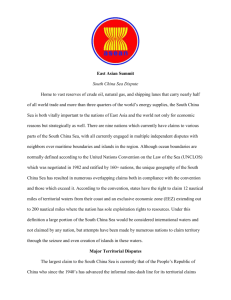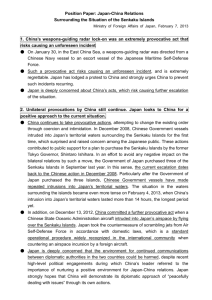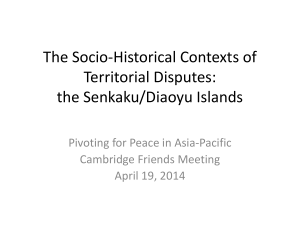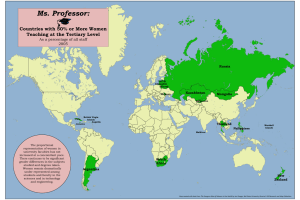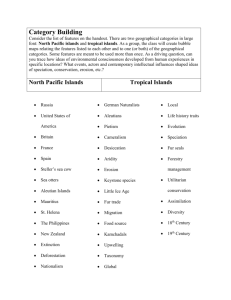An Island Approach to the Territorial Issues in the - East
advertisement
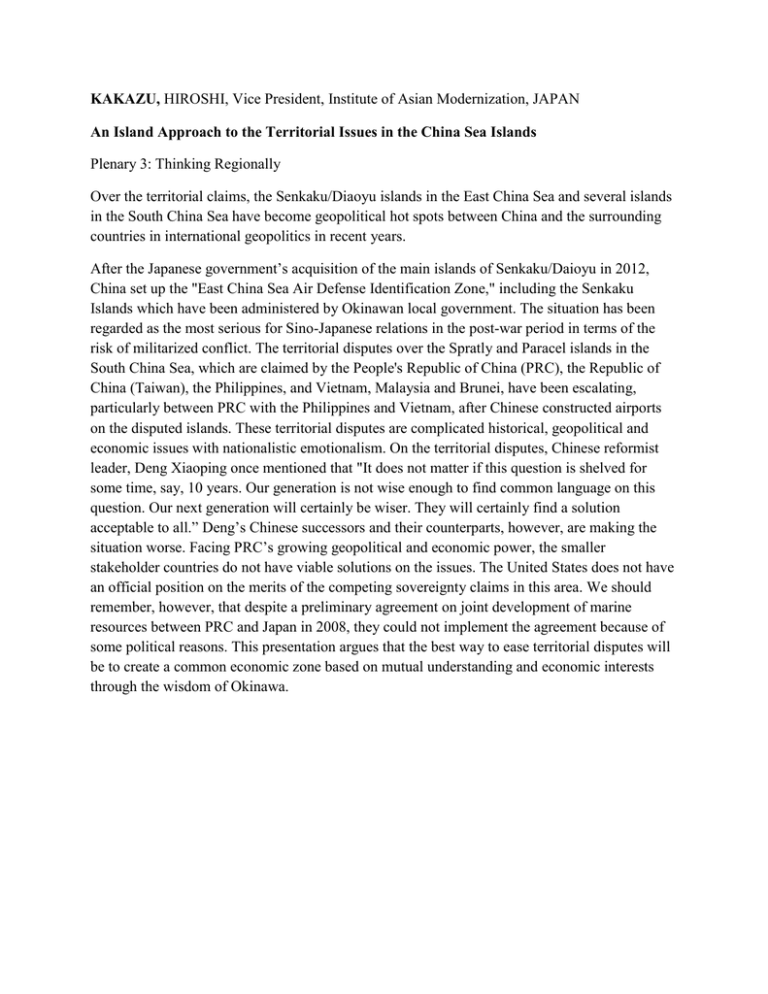
KAKAZU, HIROSHI, Vice President, Institute of Asian Modernization, JAPAN An Island Approach to the Territorial Issues in the China Sea Islands Plenary 3: Thinking Regionally Over the territorial claims, the Senkaku/Diaoyu islands in the East China Sea and several islands in the South China Sea have become geopolitical hot spots between China and the surrounding countries in international geopolitics in recent years. After the Japanese government’s acquisition of the main islands of Senkaku/Daioyu in 2012, China set up the "East China Sea Air Defense Identification Zone," including the Senkaku Islands which have been administered by Okinawan local government. The situation has been regarded as the most serious for Sino-Japanese relations in the post-war period in terms of the risk of militarized conflict. The territorial disputes over the Spratly and Paracel islands in the South China Sea, which are claimed by the People's Republic of China (PRC), the Republic of China (Taiwan), the Philippines, and Vietnam, Malaysia and Brunei, have been escalating, particularly between PRC with the Philippines and Vietnam, after Chinese constructed airports on the disputed islands. These territorial disputes are complicated historical, geopolitical and economic issues with nationalistic emotionalism. On the territorial disputes, Chinese reformist leader, Deng Xiaoping once mentioned that "It does not matter if this question is shelved for some time, say, 10 years. Our generation is not wise enough to find common language on this question. Our next generation will certainly be wiser. They will certainly find a solution acceptable to all.” Deng’s Chinese successors and their counterparts, however, are making the situation worse. Facing PRC’s growing geopolitical and economic power, the smaller stakeholder countries do not have viable solutions on the issues. The United States does not have an official position on the merits of the competing sovereignty claims in this area. We should remember, however, that despite a preliminary agreement on joint development of marine resources between PRC and Japan in 2008, they could not implement the agreement because of some political reasons. This presentation argues that the best way to ease territorial disputes will be to create a common economic zone based on mutual understanding and economic interests through the wisdom of Okinawa.
